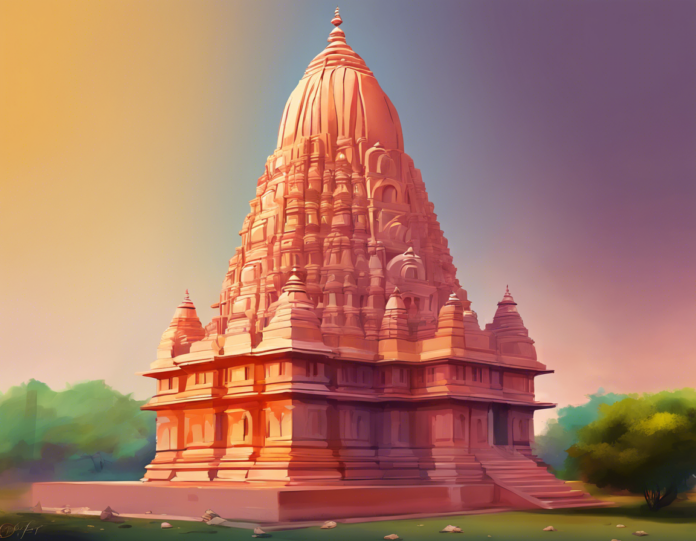Abolition of Article 370: Implications and Changes in Jammu and Kashmir
Introduction
The revocation of Article 370 and Article 35A in Jammu and Kashmir by the Indian government on August 5, 2019, marked a significant turning point in the history of the region. These articles, which granted special autonomous status to Jammu and Kashmir, were integral to its governance for several decades. The move to abolish them was met with a mix of support, skepticism, and apprehension both within the region and across the country. This comprehensive article aims to delve into the implications and changes brought about by the abolition of Article 370 in Jammu and Kashmir.
Historical Context
Article 370 of the Indian Constitution, which was incorporated in 1949, granted special status to the state of Jammu and Kashmir. It allowed the state to have its own constitution, flag, and autonomy over all matters except foreign affairs, defense, finance, and communications. Article 35A, added through a presidential order in 1954, empowered the Jammu and Kashmir state legislature to define “permanent residents” of the state and provide them with special rights and privileges.
Implications of Abolishing Article 370
1. Integration: One of the primary objectives of abolishing Article 370 was to fully integrate Jammu and Kashmir into the Indian Union. By making Jammu and Kashmir a Union Territory with a legislature and Ladakh a separate Union Territory without a legislature, the government aimed to ensure better governance and administration in the region.
-
Extension of Laws: With the revocation of Article 370, Indian laws that were not applicable to Jammu and Kashmir previously now extend to the region. This includes laws related to Right to Information, Right to Education, reservations for economically weaker sections, and laws against domestic violence.
-
Investment and Development: The Indian government expects that the abrogation of Article 370 will lead to increased investment in the region, fostering economic growth and development. Special emphasis has been placed on infrastructure projects, tourism, and job creation to uplift the socio-economic conditions of the people in Jammu and Kashmir.
Changes in Jammu and Kashmir Post Article 370 Abrogation
1. Administrative Reorganization: Jammu and Kashmir was bifurcated into two separate Union Territories – Jammu and Kashmir and Ladakh. This reorganization aimed to streamline governance, enhance security, and facilitate faster implementation of central schemes and programs in the region.
-
Security Measures: The central government deployed additional security forces in Jammu and Kashmir in anticipation of potential unrest following the abrogation of Article 370. While restrictions on movement and communication were imposed initially, efforts have been made to gradually ease these restrictions to restore normalcy in the region.
-
Political Changes: The move to scrap Article 370 also led to significant political changes in Jammu and Kashmir. The region now has centrally appointed Lieutenant Governors for both the Union Territories, replacing the earlier system of state government led by a Chief Minister.
Challenges and Controversies
1. Civil Unrest: The decision to revoke Article 370 was met with widespread protests and demonstrations in Jammu and Kashmir, leading to a period of civil unrest in the region. While the situation has improved over time, concerns about human rights violations and excessive use of force have been raised by various international organizations.
-
International Reaction: The abrogation of Article 370 received mixed reactions from the international community. While some countries viewed it as an internal matter of India, others expressed concerns about the impact it could have on regional stability and bilateral relations.
-
Legal Challenges: The decision to abolish Article 370 is currently facing legal challenges in the Supreme Court of India. Various petitions have been filed questioning the constitutionality of the move and seeking a review of the government’s actions.
Frequently Asked Questions (FAQs)
- Was the abolition of Article 370 in Jammu and Kashmir constitutional?
-
Yes, the Indian government utilized the provisions within the Indian Constitution to revoke Article 370, making it a constitutional process.
-
How has the daily life of residents in Jammu and Kashmir changed post the abrogation of Article 370?
-
Daily life in Jammu and Kashmir has been impacted by changes in security measures, communication restrictions, and the implementation of central laws post the abolition of Article 370.
-
What are the economic implications of revoking Article 370 in Jammu and Kashmir?
-
The government aims to boost economic growth in the region through increased investment, infrastructure development, tourism promotion, and job creation post the abrogation of Article 370.
-
Will the revocation of Article 370 lead to lasting peace and stability in Jammu and Kashmir?
-
While the government’s decision aims to bring peace and stability to the region, sustained efforts in dialogue, development, and reconciliation are essential for long-term peace in Jammu and Kashmir.
-
How has the international community responded to the revocation of Article 370 in Jammu and Kashmir?
- The international response to the abrogation of Article 370 has been varied, with some countries viewing it as India’s internal matter and others expressing concerns about its impact on regional stability.
In conclusion, the abolition of Article 370 in Jammu and Kashmir has ushered in a new era for the region, marked by changes in governance, administration, and socio-political dynamics. While the move has elicited a range of reactions and challenges, its long-term implications for the people of Jammu and Kashmir remain to be fully realized. Ongoing efforts in development, dialogue, and integration are crucial to shaping the future of the region and its residents in the post-Article 370 era.

